featured
Nebraska Medical Cannabis Commission Proposal Will ‘Destroy Patient Access,’ Advocates Say
Published
6 hours agoon

“I believe it is another direct and intentional step that they are taking to absolutely destroy patient access to medical cannabis.”
By Zach Wendling, Nebraska Examiner
It’s unclear what requirements the state commission to regulate medical cannabis in Nebraska might enact to license such operations by this fall, ahead of a deadline next week for detailing the criteria for applications.
The Nebraska Medical Cannabis Commission has until July 1 to write licensing criteria under state law. But as commissioners gear up for their next meeting Thursday, the first with all five commissioners, they have indicated they will consider adopting draft or emergency criteria to accept or deny licensing applications after July 1.
Licensing must begin by October 1, the same time any other requirements for medical cannabis must be enacted, according to a pair of laws that voters overwhelmingly approved in a pair of November ballot measures.
However, with just hours until the next commission meeting, there is no specific indication of what criteria the board will consider.
Also on the agenda is a legal “memorandum of agreement” to help with future rulemaking involving the Nebraska Department of Health and Human Services (DHHS) and Gov. Jim Pillen’s (R) Policy Research Office, the policy lobbying arm of the state’s chief executive.
No draft rules or regulations, including licensing criteria, have yet been made public.
Crista Eggers, executive director of Nebraskans for Medical Marijuana, which has led medical cannabis ballot measures since 2020, said she’s faced a lack of transparency and been unable to reach the commission or have questions answered in recent weeks, leaving many advocates “extremely frustrated.”
“I didn’t know we could be more frustrated than what we have been previously, but there just seems to be a new layer added every single day,” Eggers said Tuesday.
A legal ‘memorandum of agreement’
Final regulations can’t be approved this week because state law requires 30 days of notice before a public hearing on proposed guidelines. If there are no major changes after that, and the commission approves the guidelines, the governor and Attorney General Mike Hilgers (R) would have final say.
A copy of the proposed “memorandum of agreement” obtained by the Nebraska Examiner indicates that the commission will consider contracting with DHHS for “legal services,” such as providing research, administration and enforcement of commission duties. It could also recommend draft legislation or policies, advise on legal impacts and participate in the rulemaking process.
DHHS CEO Steve Corsi, Policy Research Director Kenny Zoeller and Dr. Monica Oldenburg, who chairs the Medical Cannabis Commission, would enter the agreement if adopted Thursday.
Oldenburg did not respond to a request for comment ahead of the meeting.
The Attorney General’s Office has already pledged to sue the Medical Cannabis Commission if and when it begins medical cannabis licensing. Office spokesperson Suzanne Gage said Tuesday that the office will provide legal support and guidance to the Medical Cannabis Commission, as it does to other agencies and commissions.
The commissioners are already being sued by a former state senator alleging that the Nebraska laws violate federal law that classifies marijuana as a Schedule I drug that has a high potential for abuse and “no currently accepted medical use.”
Pillen and Corsi, as well as Eggers and other ballot sponsors, are among those named in that lawsuit. A Lancaster County District Court judge is considering whether to dismiss the case.
DHHS: ‘Cannabis is not a medication’
The ballot measure that Eggers’s organization led through November 2024 was designed to sidestep DHHS, because officials of the state health agency have “adamantly” opposed legalization over many years. That includes March, when DHHS again opposed legislation, led by Republican State Sen. Ben Hansen of Blair and supported by Eggers and other longtime advocates, to help clarify the process for implementing the ballot initiatives.
Dr. Roger Donovick, executive medical officer for DHHS, said at a March legislative hearing: “DHHS maintains that cannabis is not a medication and does not agree with its legalization.”
Under the ballot measures, any health care practitioner can recommend that patients or caregivers legally possess up to five ounces of medical cannabis. Cannabis can’t yet be legally purchased in Nebraska, and some advocates have turned to health care providers in neighboring states for authorization.
Eggers said the legal memorandum would give “almost full authority” to DHHS to take over the rulemaking, which the campaign never intended and which voters never considered.
Instead, voters legalized medical cannabis and created the five-member Nebraska Medical Cannabis Commission, made up of three governor-appointed members of the Nebraska Liquor Control Commission and up to two more members also appointed by the governor.
Eggers said that was because the Liquor Control Commission has had a good track record of regulation and has valued the necessity of safeguards and of providing guidance to law enforcement.
“I believe it is another direct and intentional step that they are taking to absolutely destroy patient access to medical cannabis,” Eggers said of involving DHHS.
‘Another gut punch’
A DHHS spokesperson confirmed Tuesday that the agency has neither issued any guidance related to medical cannabis nor received any complaints against physicians related to the new laws since they took effect in mid-December.
“DHHS will adhere to state statute and follow regulations and licensing processes implemented by the Nebraska Cannabis Commission,” said Jeff Powell, DHHS director of communications.
Eggers said DHHS, however, has looked at cannabis as a “farce.” She laid the blame for the confusion and lack of transparency at the feet of Hilgers and Pillen. Hilgers led opposition to the most recent legislative bill that advocates rallied behind. It fell 10 votes short last month.
“Talk about another gut punch to the people of this state,” Eggers said. “And the ultimate gut punch is to the patients that are waiting at home, that have hope that on Thursday we are one step closer to access, but what I think we see rolling out here is that the day that they receive access is getting farther and farther and farther away.”
Some lawmakers who backed the hands-off legislative recommendation from Hilgers, as well as U.S. Sen. Pete Ricketts (R-NE), a former governor, did so partly because they first wanted to see what the Medical Cannabis Commission would do.
A separate legislative attempt to shield physicians from possible civil, criminal or professional liability from recommending medical cannabis also failed last month.
Public comment desired
Eggers said she understands patients and advocates are tired and may feel as though their voices aren’t being heard, but she said families, loved ones, neighbors and children still need Nebraskans to get loud and show up.
She said Nebraskans have a right and a duty to be part of the process. Commissioners have said they want to hear from the public, too.
“At some point, I do believe that lawmakers and state officials who are doing everything in their power to stand in the way of this and to ignore the voice of the people, to stand in the way of the will of the people, I do believe they lose at some point,” Eggers said. “But at this point, they’re winning, and Nebraskans should be absolutely disgusted…with how this is being handled.”
The Medical Cannabis Commission will meet at 10 a.m. Thursday in the first-floor hearing room of the Nebraska State Office Building in Lincoln, 301 Centennial Mall South.
Commissioners at their first meeting June 9 preliminarily approved public comment periods of up to one hour and three minutes per speaker, though a majority of the commission can change how the public participates. Written comments can be submitted to [email protected].
This story was first published by Nebraska Examiner.
Photo courtesy of Philip Steffan.

Author: mscannabiz.com
MScannaBIZ for all you Mississippi Cannabis News and Information.
You may like
-
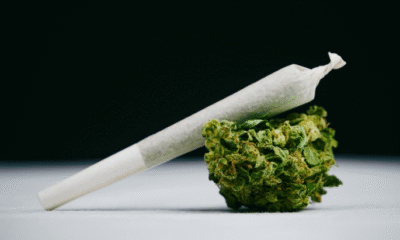

NORML Op-Ed: Debunking Cannabis Potency Myths
-
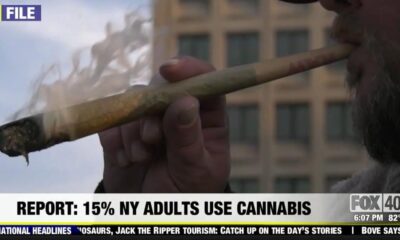

Report 15% of NY Adults Use Cannabis
-


Rand Paul Files Bill To Triple Federal THC Limit For Hemp As House Pursues Crackdown On Consumable Cannabinoids
-
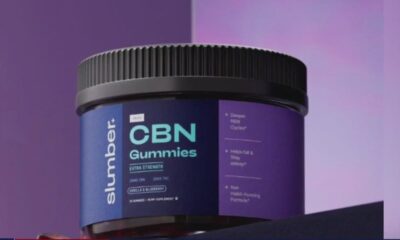

Marketshare of cannabis sleep aids skyrockets
-


US House Committee Approves Bill to Close THCA ‘Loophole,’ Ban Intoxicating Hemp Products
-
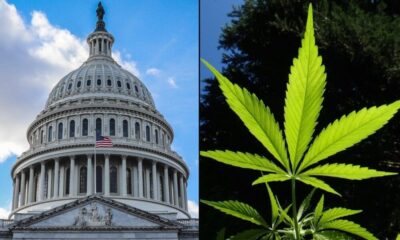

House Votes To Let VA Doctors Recommend Medical Marijuana To Military Veterans And To Support Psychedelics Research
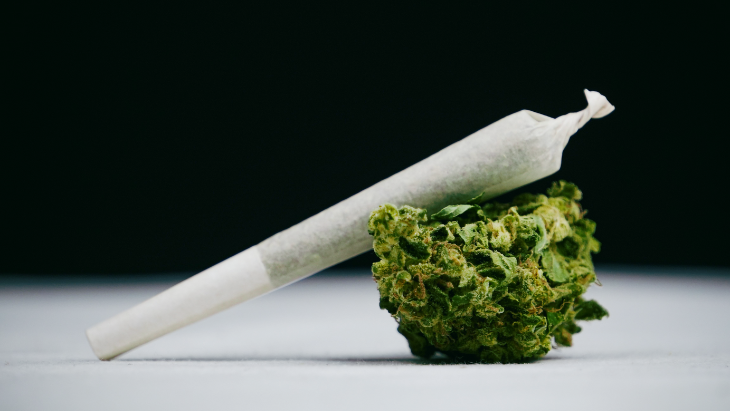

From the onset of marijuana prohibition, criminalization advocates sought to advance their agenda — an unduly influence to the public — by sensationalizing the supposed strength of cannabis.
In the 1930s, while lobbying for the first-ever federal ban on cannabis, Bureau of Narcotics Commissioner Harry Anslinger alleged that the marijuana of a century ago was so uniquely potent that it was “entirely the monster Hyde, the harmful effect of which cannot be measured.”
Since then, legalization opponents have repeatedly alleged that cannabis’ potency has exponentially grown stronger. Testifying before Congress in 1996, then-Sen. Joe Biden opined that the potency of 1990s weed was unlike anything America had ever seen. “It’s like comparing buckshot in a shotgun shell to a laser-guided missile,” he said.
Modern day prohibitionists continue to engage in this same rhetorical tactic.
Let’s set the record straight. First, the availability of higher potency cannabis products is not a phenomenon unique to today’s state-legal markets. In fact, more potent products like hashish have always been publicly available.
Typically, when consumers encounter higher strength marijuana, they ingest lesser quantities of it. This self-regulatory process is known as self-titration.
Second, higher potency marijuana products do not dominate state-legal markets. In fact, retail sales records from legal states show that most consumers tend to prefer and gravitate toward lesser strength products.
Third, unlike alcohol (which is readily available in a variety of potencies, including highly-potent formulations like grain alcohol and absinthe), THC is incapable of causing lethal overdose — regardless of its potency or the quantity consumed.
That’s not to say that cannabis products cannot be over-consumed. They can. But in such instances, consumers typically experience only temporary dysphoria (commonly referred to as a panic attack) — the effects of which dissipate within a few hours. (By contrast, alcohol overconsumption is associated with some 2,200 overdose deaths annually.)
Nonetheless, in order to discourage overconsumption, most states regulate certain cannabis products, like edibles, to single serving sizes. All legal states require that products’ potencies appear on their labels so consumers can make informed decisions prior to consuming them.
In some instances, overexposure to higher strength products might induce temporary psychotic-like symptoms. However, such incidents are exceedingly rare and are typically exclusive to those who are either predisposed to or have a preexisting psychiatric disorder. (Notably, exposure to high-potency alcohol also triggers psychosis in certain consumers.)
Specifically, an exhaustive study published in the Journal of the American Medical Association determined that “state medical and recreational cannabis policies were not associated with a statistically significant increase in rates of psychosis-related health outcomes.”
Overall, most Americans are happy with cannabis legalization. Thirteen years into states’ marijuana legalization experiment, public support for making marijuana legal nationwide has never been higher. To date, 24 states have legalized the adult-use market. None of these states have everrepealed their legalization laws. That’s because these policies are working largely as voters and politicians intended — and because they are preferable to cannabis criminalization.
Ultimately, any potential harms associated with cannabis are best mitigated by a policy of legalization, regulation and education. They are only exacerbated by criminalization, sensationalism and stigmatization.
A version of this op-ed was initially published in The Atlanta Journal-Constitution.
Related

Author: mscannabiz.com
MScannaBIZ for all you Mississippi Cannabis News and Information.
featured
Rand Paul Files Bill To Triple Federal THC Limit For Hemp As House Pursues Crackdown On Consumable Cannabinoids
Published
2 hours agoon
June 25, 2025
As the hemp industry raises concerns about congressional attempts to ban most consumable cannabinoid products, a GOP senator has filed a bill that would triple the concentration of THC that the crop could legally contain, while addressing multiple other concerns the industry has expressed about federal regulations.
Sen. Rand Paul (R-KY) introduced the legislation, titled the Hemp Economic Mobilization Plan (HEMP) Act, last week. It mirrors versions he’s sponsored over the last several sessions.
Hemp and its derivatives were legalized under the 2018 Farm Bill, but the industry has experienced multiple setbacks in the years since—and the proliferation of intoxicating cannabinoid products has led to pushes in Congress and state legislatures across the country to reign in the largely unregulated market.
To that point, a GOP-led House committee this week approved a spending bill containing provisions that hemp stakeholders say would devastate the industry, prohibiting most consumable cannabinoid products that were federally legalized during the first Trump administration.
The legislation would “effectively” criminalize hemp-derived cannabinoid products, including CBD, according to a Congressional Research Service (CRS) report.
In contrast, the newly reintroduced measure from Paul would address one of the most common complaints that lawmakers have heard from hemp businesses under the current law, which is that the crop is federally defined as containing no more than 0.3 percent THC by dry weight. They say that’s too low, and so the bill would increase that threshold to 1 percent.
It would also address potential problems with testing requirements under U.S. Department of Agriculture (USDA) regulations. Hemp processors currently get a 15-day window to test the crop’s flower to ensure that the THC concentration is within the allowed limits. But testing flower can be onerous and farmers have said it would stretch their resources thin, not to mention that the plant’s THC is significantly impacted by external factors.
To fix that issue, the bill calls for final hemp products themselves to be tested, rather than the initial flower from the plant.
The legislation also sets documentation requirements for people transporting hemp shipments, intended to prevent further instances of law enforcement seizing the legal crop, believing it to be illicit marijuana. The bill expands the type of documentation that people could possess to demonstrate product legality.
Whereas the initial version of Paul’s measure filed in 2020 would have required them to carry a certificate from a lab demonstrating that the product contains no more than 1 percent THC, they could now instead choose to simply bring a copy of the hemp producer’s license.
While stakeholders would welcome the senator’s proposal, there’s also significant anxiety within the industry about the separate legislation that would significantly upend the hemp market that’s developed over the last several years.
While report language attached to the 2026 appropriations bill was recently amended to clarify lawmakers’ intent not to disrupt the non-intoxicating cannabinoid market—signaling that products like CBD shouldn’t be banned—the legislation itself hasn’t changed and could still jeopardize the industry without further amendments to its provisions.
Hemp industry stakeholders rallied against that proposal, an earlier version of which was also included in the base bill from the subcommittee last year. It’s virtually identical to a provision of the 2024 Farm Bill that was attached by a separate committee last May via an amendment from Rep. Mary Miller (R-IL), which was also not enacted into law.
A leading alcohol industry association, meanwhile, has called on Congress to dial back language in the House spending bill that would ban most consumable hemp products, instead proposing to maintain the legalization of naturally derived cannabinoids from the crop and only prohibit synthetic items.
Members of Wine & Spirits Wholesalers of America (WSWA) also met with lawmakers and staffers in April to advocate for three key policy priorities that the group says is based on “sound principles of alcohol distribution.” They include banning synthetic THC, setting up a federal system for testing and labeling products and establishing state-level power to regulate retail sales.
Separately, key GOP congressional lawmakers—including one member who supports marijuana legalization—don’t seem especially concerned about provisions in the new spending bill that would put much of the hemp industry in jeopardy by banning most consumable products derived from the plant.
—
Marijuana Moment is tracking hundreds of cannabis, psychedelics and drug policy bills in state legislatures and Congress this year. Patreon supporters pledging at least $25/month get access to our interactive maps, charts and hearing calendar so they don’t miss any developments.![]()
Learn more about our marijuana bill tracker and become a supporter on Patreon to get access.
—
Jonathan Miller, general counsel of the U.S. Hemp Roundtable, told congressional lawmakers in April that the market is “begging” for federal regulations around cannabis products.
At the hearing, Rep. James Comer (R-KY) also inquired about FDA inaction around regulations, sarcastically asking if it’d require “a gazillion bureaucrats that work from home” to regulate cannabinoids such as CBD.
A report from Bloomberg Intelligence (BI) last year called cannabis a “significant threat” to the alcohol industry, citing survey data that suggests more people are using cannabis as a substitute for alcoholic beverages such a beer and wine.
Last November, meanwhile, a beer industry trade group put out a statement of guiding principles to address what it called “the proliferation of largely unregulated intoxicating hemp and cannabis products,” warning of risks to consumers and communities resulting from THC consumption.
Read the text of the HEMP Act below:
Photo courtesy of Max Pixel.

Author: mscannabiz.com
MScannaBIZ for all you Mississippi Cannabis News and Information.
featured
US House Committee Approves Bill to Close THCA ‘Loophole,’ Ban Intoxicating Hemp Products
Published
3 hours agoon
June 25, 2025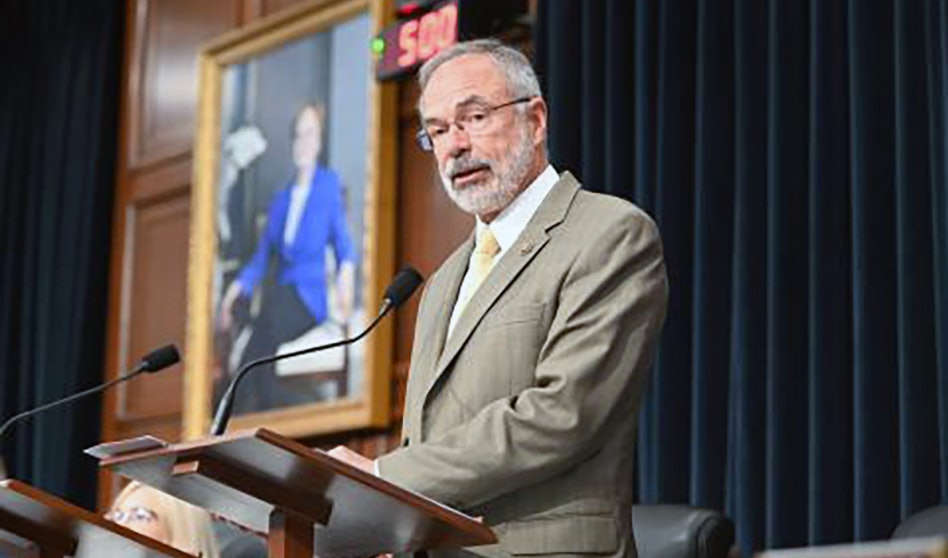
U.S. House Republicans advanced what many view as a hemp-killing provision in a must-pass appropriations bill for fiscal year 2026.
The House Appropriations Committee voted along party lines, 35-27, on June 23 to approve the Agriculture, Rural Development, Food and Drug Administration, and Related Agencies Appropriations Bill. The 138-page spending bill includes more than $25 billion in discretionary allocations to address myriad issues facing U.S. farmers, ranchers and rural communities.
In addition to focusing on America’s food and drug supply, this year’s bill also includes language to rewrite the rules around hemp-derived cannabinoid products. The provision aims to address what elected officials and law enforcement groups nationwide have increasingly viewed as a public health and safety concern in the aftermath of the 2018 Farm Bill’s federal legalization of industrial hemp cultivation. The 2018 Farm Bill regulates hemp as an agricultural commodity but not finished goods containing the plant’s derivatives.
Under the Appropriation Committee’s fiscal 2026 legislation, hemp-derived cannabinoid products containing synthetic compounds and/or quantifiable amounts of THC or THCA—or other cannabinoids that have similar effects on humans or animals—would be illegal.
When the legislation first advanced through the House Subcommittee on Agriculture, Rural Development, Food and Drug Administration (FDA), on June 5, Rep. Andy Harris, R-Md., said he was hoping to close the “hemp loophole” in the 2018 Farm Bill that has resulted in the proliferation of intoxicating cannabinoid products, such as those that contain delta-8 THC.
Harris, who chairs the subcommittee, provided similar opening remarks for the full committee markup that followed.
“As many states have stepped in to curb these dangerous products from reaching consumers, particularly children, it’s time for Congress to act to close this loophole while protecting the industrial hemp industry,” Harris said. “Reports that the included language would destroy legitimate businesses are simply not true—and that is clear to anyone closely reading the carefully drafted language that threaded the needle.”
The U.S. Hemp Roundtable accused Harris earlier this month of “reviving his crusade” to “quietly” dismantle the hemp industry by burying language on page 113 of the proposed spending bill that would redefine hemp in a way that would “ban the vast majority of safe, legal hemp-derived products sold nationwide.”
The industry advocacy organization contended that the bill’s inclusion of language to prohibit products with “quantifiable amounts” of THC or THCA would also effectively ban most nonintoxicating CBD products.
Renée Johnson, a specialist in agricultural policy with the nonpartisan Congressional Research Service (CRS), authored a June 13 report on the appropriations bill that backed that claim, writing that “excluding hemp-derived cannabinoid products from the federal definition of hemp effectively would prohibit production and sale of hemp-derived cannabinoids, derivatives, and extracts thereof, including cannabidiol (CBD).”
However, an updated version of Johnson’s CRS report was published on June 20 to exclude any mention of CBD.
Manufacturing hemp products with a purified CBD isolate that filters out even trace amounts of THC is a much more expensive process: Under the 2018 Farm Bill, hemp can contain up to 0.3% delta-9 THC on a dry-weight basis during a pre-harvest field test. But eliminating that potency threshold would change the compliance rules on finished goods.
The House Appropriations Committee approved a manager’s amendment (from Harris) on June 11, clarifying that in “determining the quantifiable amounts, the committee does not intend for industrial or nonintoxicating, hemp-derived cannabinoid products with trace or insignificant amounts of THC to be affected.”
The legislation authorizes the U.S. Secretary of Health and Human Services to determine what qualifies as “quantifiable amounts” of THC or other cannabinoids. In addition, industrial hemp grown for fiber, grain or other non-cannabinoid purposes would be defined separately.
While thousands of U.S. businesses have become dependent on manufacturing, distributing and selling consumable products containing intoxicating hemp derivatives, not all industry associations necessarily disagree with the intent of the appropriations bill.
The American Trade Association of Cannabis and Hemp (ATACH) stands on the principle that intoxicating products should be regulated when available for consumers to improve public safety and promote growth for the cannabis industry.
“The 2018 Farm Bill set the stage for the proliferation of synthetic THC products,” ATACH President Michael Bronstein said in a June 23 statement provided to Cannabis Business Times. “Today’s action by the House Appropriations Committee is an important first step toward addressing the risks posed by synthetic THC products, creating clear regulatory lanes for hemp-derived products, and resolving legal loopholes.
“Congress must confront the dangers of chemically converted synthetic THC products, safeguard CBD, and create parity across natural THC products regardless of origin. We look forward to continuing to work with Congress to create a unified federal framework for all natural THC products.”
Harris also included similar hemp language in his subcommittee’s draft of the fiscal 2025 agriculture/FDA spending bill, but it was later removed from last year’s appropriations package.
This year’s rendition is now being prepared to arrive on the House floor.

Author: mscannabiz.com
MScannaBIZ for all you Mississippi Cannabis News and Information.

NORML Op-Ed: Debunking Cannabis Potency Myths

Report 15% of NY Adults Use Cannabis
Rand Paul Files Bill To Triple Federal THC Limit For Hemp As House Pursues Crackdown On Consumable Cannabinoids

Marketshare of cannabis sleep aids skyrockets

US House Committee Approves Bill to Close THCA ‘Loophole,’ Ban Intoxicating Hemp Products

House Votes To Let VA Doctors Recommend Medical Marijuana To Military Veterans And To Support Psychedelics Research

World-Class Growing Solutions | Cannabis Business Times

Summers are better with Flav

Nebraska Medical Cannabis Commission Proposal Will ‘Destroy Patient Access,’ Advocates Say

Circuit Court Ruling for Arkansas Renders Texas Governor’s Hemp Veto Argument Moot

Jones Soda Co. Sells Mary Jones THC Beverage Brand

Feds Say Tourist Who Admitted To Prior Marijuana Use In Legal Places Was Denied Entry To US Over Drugs—Not Bald JD Vance Meme

The PFAS Threat in Cannabis and Hemp: What You Need to Know

Chicago Police Can’t Search Vehicles Based on Smell of Raw Cannabis Under New Rules

Marijuana Opponents ‘Have Lost’ The Debate, GOP Senator Says, Arguing ‘It’s Time’ To Regulate It Like Alcohol And Tobacco

How much do you know about Pennsylvania’s medical marijuana program? Take our quiz.

Verano Unveils Bodega-Style Dispensary Experience at Zen Leaf Cave Creek in Phoenix

Congress to vote on cannabis & psychedelics amendments this week (Newsletter: June 25, 2025)

Rockford teen intended to deliver 300+ grams of cannabis, police say

El Paso cannabis shops relieved after Gov. Abbott vetoes ban on THC products

More older adults are using cannabis, study says

Marijuana use rising among seniors, and doctors are sounding alarms

More older Americans are using marijuana, according to new data

With Texas Hemp Ban Now Vetoed By Governor, Industry And Lawmakers Turn To Regulation

Alert: Department of Cannabis Control updates data dashboards with full data for 2023

Connecticut Appoints The US’s First Cannabis Ombudsperson – Yes there is a pun in there and I’m Sure Erin Kirk Is Going To Hear It More Than Once!

5 best CBD creams of 2024 by Leafly

Free delta-9 gummies from Bay Smokes
New Study Analyzes the Effects of THCV, CBD on Weight Loss

EU initiative begins bid to open access to psychedelic therapies

Mississippi city official pleads guilty to selling fake CBD products

May 2024 Leafly HighLight: Pink Runtz strain

Curaleaf Start Process Of Getting Their Claws Into The UK’s National Health System – With Former MP (Resigned Today 30/5/24) As The Front Man

5 best autoflower seed banks of 2024 by Leafly

Horn Lake denies cannabis dispensary request to allow sale of drug paraphernalia and Sunday sales | News

Discover New York’s dankest cannabis brands [September 2024]

Nevada CCB to Accept Applications for Cannabis Establishments in White Pine County – “Only one cultivation and one production license will be awarded in White Pine County”

Press Release: CANNRA Calls for Farm Bill to Clarify Existing State Authority to Regulate Hemp Products

Local medical cannabis dispensary reacts to MSDH pulling Rapid Analytics License – WLBT

6 best CBD gummies of 2024 by Leafly

5 best THC drinks of 2024 by Leafly

The Daily Hit: October 2, 2024

5 best delta-9 THC gummies of 2024 by Leafly

People In This State Googled ‘Medical Marijuana’ The Most, Study Shows

Weekly Update: Monday, May 13, 2024 including, New Guide for Renewals & May Board meeting application deadline

Thailand: Pro-cannabis advocates rally ahead of the government’s plan to recriminalize the plant

PRESS RELEASE : Justice Department Submits Proposed Regulation to Reschedule Marijuana

Press Release: May 9, STIIIZY and Healing Urban Barrios hosted an Expungement Clinic & Second Chance Resource Fair
Trending
-

 California Cannabis Updates1 year ago
California Cannabis Updates1 year agoAlert: Department of Cannabis Control updates data dashboards with full data for 2023
-

 Breaking News1 year ago
Breaking News1 year agoConnecticut Appoints The US’s First Cannabis Ombudsperson – Yes there is a pun in there and I’m Sure Erin Kirk Is Going To Hear It More Than Once!
-

 best list11 months ago
best list11 months ago5 best CBD creams of 2024 by Leafly
-

 Bay Smokes12 months ago
Bay Smokes12 months agoFree delta-9 gummies from Bay Smokes
-

 cbd1 year ago
cbd1 year agoNew Study Analyzes the Effects of THCV, CBD on Weight Loss
-

 Business9 months ago
Business9 months agoEU initiative begins bid to open access to psychedelic therapies
-

 Mississippi Cannabis News1 year ago
Mississippi Cannabis News1 year agoMississippi city official pleads guilty to selling fake CBD products
-

 California1 year ago
California1 year agoMay 2024 Leafly HighLight: Pink Runtz strain




